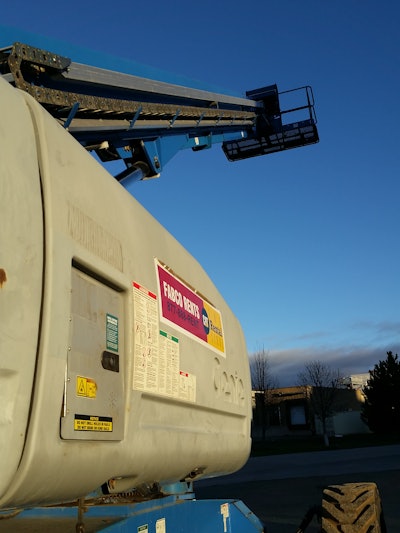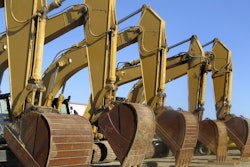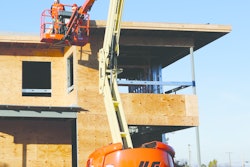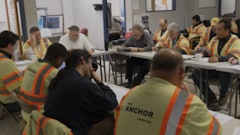
I really enjoy reading and studying the Wells Fargo Equipment Finance 2016 Construction Industry Forecast. Those of you who don’t study this report are missing out on what the industry is looking for in 2016. I’m sure you can get a copy from the Wells Fargo website. (You can also download it at ForConstructionPros.com/12159919.) Do yourself a favor and get a copy for your management team to review.
What I like about the report is the way it collects the data and who it’s collected from. Wells Fargo surveys both equipment dealers and contractors to get their assessment of what to expect for various types of construction. Of the approximately 500 companies surveyed, the majority were made up of contractors covering all types of construction work.
A part of the survey that caught my eye as needing further discussion were questions dealing with rental rates and whether increases in the rates would trigger a “buy” decision on behalf of the contractor.
One of the survey questions was: “Why do you rent construction equipment? Rank the top three.”
- 42% indicated they rent project-specific equipment
- 29% said because the level of work does not justify a purchase
- 17% stated they like the flexibility of returning equipment
- Pretty reasonable answers, don’t you think? It is also important to note that these three answers represented 68% of the respondents.
Another question was: “How much would construction equipment rental rates need to increase for you to consider buying instead of renting equipment?”
- 52% said they would buy if rental rates increased 15% or more
- 25% stated they would consider buying if rates increased between 5% to 15%
The reason the responses regarding a rental rate increase need further discussion goes back to the answers to Question #1. Let’s see, the respondents indicated they rent for specific needs. They rent because they don’t have enough work to justify a purchase. They rent because they want to avoid a long-term commitment, which they can do by returning the equipment when they’re done with it. So what changed? To my way of thinking, nothing changed to justify sticking their neck out for an extended period of time.
Think Long-term Utilization Prior to Purchase
Being a CFO for a rental company gives me the knowledge of what it costs to own and operate various types of equipment. So when I see the answers to why contractors rent, it tells me they don’t have the 65% time utilization required to justify the purchase of a piece of construction equipment.
And let’s not kid ourselves — the answers to Question #1 translate to mean the contractors will not utilize and bill the equipment at a 65% time utilization rate. If they don’t hit that utilization rate, chances are owning the equipment will not be profitable for the years in question.
It costs quite a bit to own and operate a piece of equipment and still make a profit or even break even on it. A contractor will probably purchase a unit for more than the rental company pays for it. In addition, the rental company is probably financing the purchase for a lower rate of interest. Rental companies also have experienced techs to maintain the fleet, and trucking assets capable of moving the equipment where it’s needed, when it’s needed. I kind of doubt a contractor could own and operate the equipment for what a rental company spends.
Rental companies have to own, operate, store, maintain and move equipment on a daily, weekly or monthly basis at a 65% utilization rate to make a buck. They have to do this not only for the units they rent but for the remaining units in the fleet, as well. No easy task.
In the end, I doubt the contractors responding to the survey could beat the rental company acquisition, financing and tech costs. Considering the answers to Question #1, I also doubt they could meet the 65% utilization rate — for at least five years — to cover the debt service to purchase the unit.
I agree there is a point where the cost of rental justifies a purchase, but only if the equipment in question is being used at a 65% utilization rate; is being billed to the job and collected on; and will continue to be properly utilized for the entire financing period. Without meeting these criteria, I doubt if the purchase is justified just because current rental rates increased beyond a certain percentage.
The point here is you need to analyze a potential purchase for the entire financing period and not just for a year when there happens to be more work that cannot be counted on for future periods. A purchase is a long-term commitment, justified in some cases and not justified in others. In short, do not make rash decisions based on an increase in rental rates without knowing the equipment you buy will be utilized for the entire financing period.
Garry Bartecki is the managing member of GB Financial Services LLP and a consultant to the Associated Equipment Distributors. He can be reached at (708) 347-9109 or [email protected].



















